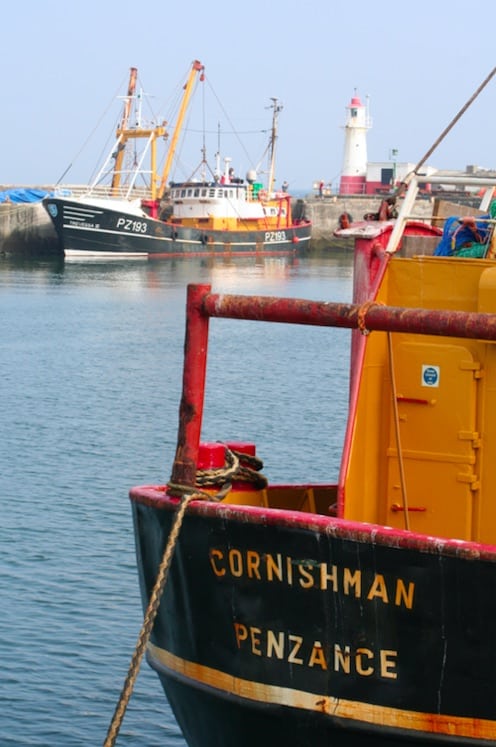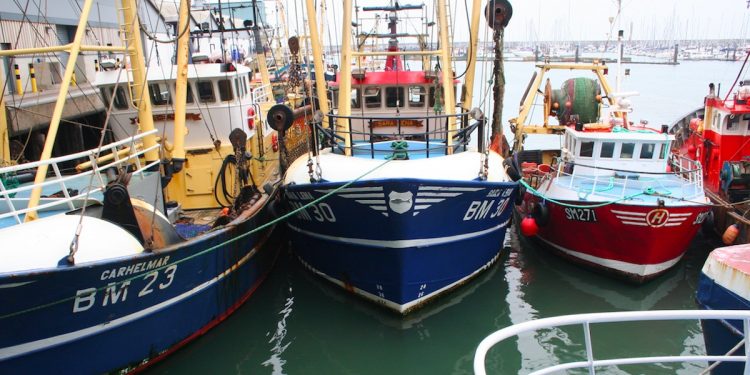As the UK government announced a financial package to alleviate the effects of the Covid-19 epidemic, with the largest proportion set aside for loans to struggling companies, as well as a massive intervention to support those in paid employment, the NFFO points out that there is a clear gap as this support does not reach those in self-employment – including share fishermen.
‘That is why an urgent support package shaped to provide meaningful aid to the fishing sector is needed and is being worked on. We expect an announcement shortly,’ and NFFO spokesman commented.
‘It will be important that the package keeps those boats at sea, and supply chains operational, where this is an option, and creates the conditions that allows vessels and crews which have had to tie-up to bounce back, as soon as the crisis is over.’
According to the NFFO’s analysis, some of the measures announced so far will be relevant and significant for the fishing sector.
‘Many will not because of the peculiarities of the way our industry is organised. The immediate challenge is therefore to identify the support measures available which can be used and the gaps which will need to be filled by additional tailored interventions.’

Workers in the food industries have been designated as key workers, along with those employed in transport and so exempt from some social distancing requirements, which should help to ensure that supply chains remain operational.
‘The fishing industry is itself taking what steps it can to help, within the strictures of a dramatically altered market landscape. Demand for shellfish species like crab and lobster has fallen away so dramatically that the knock-on effects on fishing vessels is immediate. Buyers are, with few exceptions, not buying. There are some early signs of an increase in demand from China but that is a small uptick within an otherwise unrelieved picture of desperation – especially on the back of a winter of storms which prevented most vessels getting to sea – and earning – for several months,’ the NFFO’s spokesman commented.
‘The situation with whitefish is more mixed, depending on the specific markets involved, and the steps being taken to maintain fish prices. Producer organisations and market authorities are evening out supply to avoid market gluts as far as possible. This is being done in different ways in different places but overall the aim is to keep the fleets at sea – albeit with a lower level of activity – to maintain supply, keep supply chains operational, people fed, maintain earnings, keep crews intact and businesses viable for when the crisis passes.’
The closure of pubs, restaurants and supermarket fish counters has a drastic impact on demand.
At the same time, there is a recognition that social isolation measures have potentially created a significant market for door-step deliveries and there are signs, right around the coast, of fishing boats, markets, producer organisations, and existing supply businesses adapting to these new opportunities.
The NFFO points out that measures that could be taken include suspending proposed cod recovery measures where it is judged that the drop in demand for fish will directly reduce fishing pressure on cod and act as a substitute for restrictive measures, adapting the EU landing obligation to leap-frog impediments to the efficient operation of fishing vessels, and in particular eliminating the risk that chokes in mixed fisheries could tie up fleets if the quota for a minor species is exhausted, and removing obstacles to securing storage aid for fish withdrawn from the market and temporarily frozen.
These are also options for accessing EU tie-up aid.
‘The UK is no longer formally an EU member state but is continuing to contribute to the EU budget in 2020, so this should be available through the European Maritime and Fisheries Fund,’ the NFFO states.
‘The scale and speed of the economic support measures put in place by government are both vital and unprecedented in peacetime. Being very broad-brush the measures announced to date do not amount to an adequate level or form of support that is commensurate with the challenges facing the fishing sector. Work is under way within government and within the fishing industry itself, to fill that gap,’ the NFFO says.
‘A jigsaw of measures is appearing. Some pieces have been put in place quickly. Others are still being shaped to fit. It will be some time until the full picture emerges, in these remarkable and challenging times. Urgency is paramount.’









